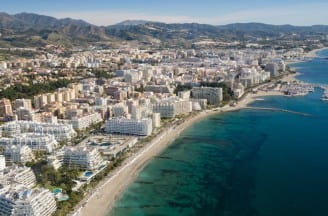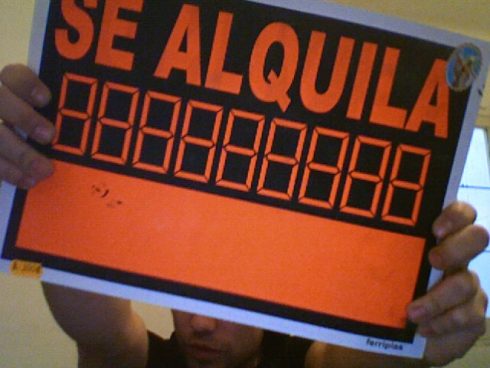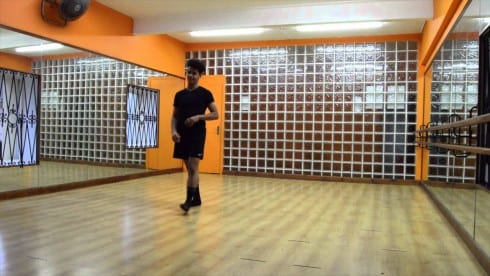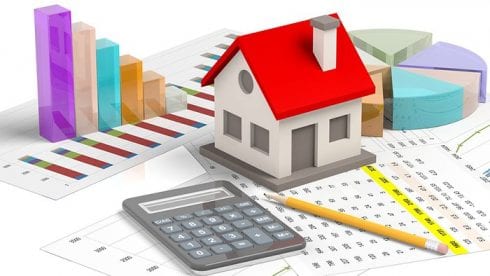
IN many of the in-demand locations on the Costa del Sol where we work, particularly in Marbella and Estepona, there has been no new building at all for the past six or seven years and a number of half-finished developments have remained that way since ‘la crisis’ hit back in 2008.
At the end of 2014, however, and more noticeably this year, builders, banks, and, most important of all, buyers seem to have recovered their confidence in the marketplace and, due to a dearth of existing, quality, modern properties for sale, new-build urbanisations are on the rise again.
But, if you’re thinking about putting down a deposit or putting your signature on the bottom of a contract on an off-plan property any time in the not-too-distant, you should be aware that a number of potential legal and planning pitfalls await those who don’t do a little research first.
The first thing you need to confirm is that the property in question has a valid building license, issued by the local Town Council, and that it complies with urban planning regulations.
Spanish law protects prospective buyers from onerous clauses that favour developers and, even if you have already signed an unfair contract, you may have redress in the courts. As an integral part of any contract for the sale of a new-build property, developers also have to provide buyers with a full schedule of specifications that define the characteristics of the home in question.
Also, check the developer or promoter has insurance in place to protect you, and your money, if things go awry. This should be both a bank guarantee (provided by an institution duly authorised by the Bank of Spain) to refund advance payments if work does not begin or end on agreed dates and a 10-year liability warranty against structural defects. Ask to see the policies, read the small print, and, then, if you’re sure, sign. You should also demand a certificate from the insurer and the developer every time you make a payment.
Doesn’t the show home look great? Well, you’ll want your apartment to be identical, so ensure you get hold of a detailed list of building materials and specifications from the developer, and check these against the architect’s plans that have been submitted to and approved by the Town Council and any promotional materials provided as part of the sale, to avoid problems when the keys are handed over. And get your lawyer to make sure the property you’re buying is correctly identified on any contract you sign, so you don’t get a basement instead of a penthouse.
If you’re buying a unit in a new development, there will not be an existing community, so the developer will draw up their own rules which will affect all those who will live in the development. Always ask to see the statutes beforehand, to make sure there’s nothing you can’t live with.
Delays can, and frequently do, occur in any build, but if the wait for your new home becomes too long to bear you may be able to cancel the contract, sue for damages, and get back any money paid in advance, via bank-guarantee insurance. A lawyer can help you explore your options.
Once your new property is finished and ready for delivery it cannot be legally resided in until the local Town Council issues a license of initial occupation. Ask the developer for a copy or, if it cannot be produced, refuse to complete until it is provided. Without one, you will not be able to connect to utilities and may even be liable for fines, so don’t take the developer’s word for it.
Finally, before we shuffle off this mortal coil come taxes, and, if you buy a new property in Spain, you need to pay 10% VAT on top of the purchase price to Hacienda, as well as 1.5% of the price in Stamp Duty, meaning if the place you want to buy is going for 300,000€, you need to set aside another 34,500€ to keep the taxman happy.












And never, ever forget, that you, as the buyer, are ALWAYS responsible for any trouble..not your lawyer or real estate agent, nore the notario….check out if local AND regional permits are present and up to date…if someone says ” we “ll fix it at the notario”….run.
From years of experience in the CDS real estate market, one word of advice I’d make to anyone thinking of buying a NEW property here – DON’T. You will hear all sorts of excuses from your: RE Agent, Lawyer, Notario,,, et al – as your “new Home ” is demolished with 0 compensation to U!
Are you saying that every new property that has been sold on the CDS has been knocked down ?. If not every one then what percentage have been knocked down 95% … 50% .. 10%, proper figures gleaned from your extensive experience would help people.
John Lightfoot, the fact is too many so called illegal properties have been demolished and until the laws are changed to offer real protection, why take the risk. Obviously demolition is the worst case scenario but there are plenty of other things that can go wrong in the buying process which will make your life a misery. Sadly, the property laws are not fit for purpose (particularly in Andalucia) and if people keep voting PSOE in the regional elections, it is unlikely to change. My advice would be to rent until something changes but God knows when that will be.
I am not denying that some new properties have been demolished, I am interested in figures, there are some new properties being built in Nerja is your advice for those the same eg: Do not buy as they could get demolished ?.
Surely every new property can not be illegal, there has to be someone honest building out there ?
There may not be many houses demolished but it is estimated that there are 300,000 illegal ones which are unsellable, many in Andalucia. There may be new ones which are legal but I wouldn’t want to take the chance, would you?
If you want to see an estate agent lost for words in Spain ask them two questions – what professional qualifications do they have that allows them to make an informed opinion on the properties they are selling, a legal requirement in most European countries but not in Spain or the UK. Then ask them what is the U value of the property – they won’t even know what a U value is. Pointless asking about dpcs’, vapour barriers or cold bridges – que?
Good points Stuart, a totally unregulated property market, except for a couple of pseudo fee paying memberships under the pretence of a professional body.
One could also ask, were you previously a carpenter, electrician, plumber, car mechanic, builder, hairdresser or in telesales etc when you lived in the UK?
Many agents are reticent to tell what commission they charge to sell a property, this commission being added to the sales price or valuation which the buyer ends up paying, thus paying over the odds! This commission can be very high and add anything from 5-10% maybe more in some cases. It is buyer beware still.
The other “U value” that one should use when considering Spanish property is, of course, a U-Turn lol. John Lightfoot has a point, not every property is illegal. The issue is that legality of property is a very difficult thing to achieve in Spain. Even if a property is “legal”, many still have problems with irregular paperwork. Living here for over a decade, I have heard so many stories of undeclared taxes, fines and other paperwork problems – and they are not urban myths. Always use a property lawyer and not one that does other types of practice. It is also worth getting a lawyer to check your lawyer; I did that myself and it was worth the extra checks. Hindsight is a beautiful thing of course; it wasn’t worth the time or expense looking back. There are so many other nice places in Europe that don’t have all these tiresome problems. Legality of property is just one issue. Quality of the property is another; the building standards are shocking in Spain and if you could see your house being built from day one, most people would walk away at that point.
So, what are your UK houses worth this week, John?